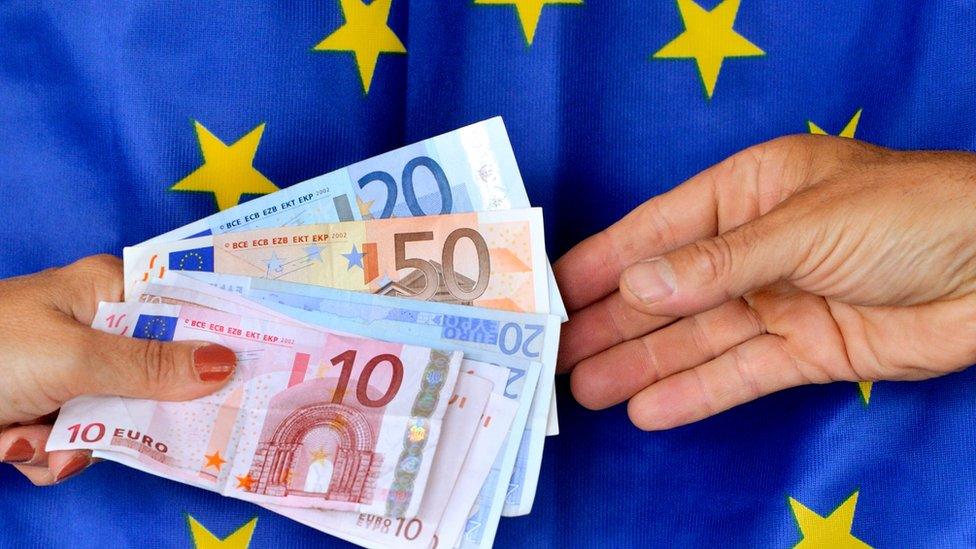New EU union could tap investor funds across Europe
- Published

Hard cash - getting investment for European companies could be made easier by CMU
New plans to get business to tap investor funds across the EU are to be outlined by the UK on Wednesday.
Britain's EU Commissioner, Lord Hill, believes his Capital Market Union (CMU) could free up investment across Europe.
Most European companies rely on banks to provide capital. CMU aims to encourage alternatives, from crowd funding to investment funds.
And this week 17 countries demanded that the European Commission accelerate progress towards a single market.
Although the EU's financial system provides some two trillion euros to small and medium sized businesses, non-bank finance is less than half that in the US.
Lord Hill, who is European Commissioner for Financial Stability, Financial Services and Capital Markets Union said earlier this year: "The CMU should create the conditions for capital to cross borders, to flow to entrepreneurs with high growth potential, no matter where they are located."
His first move will be to announce a review of some 40 pieces of legislation in the financial sector that have been put in place since 2008.
Much of it was drawn up in the height of the financial crisis and he believes "should have been more joined up".
Hard cash
Lord Hill also wants to encourage investment in infrastructure, and in start-ups through venture capital, and to take a knife to the EU's new proposals on companies' prospectuses, which he says are too costly and too burdensome.
He also wants to encourage companies to fund themselves by selling shares and bonds that can be traded across markets.
And he says the CMU should help develop the European pension and insurance markets and other retail financial services.
While Lord Hill sees the CMU as creating a single market across all 28 countries, there are questions about whether the rules will work differently for the 19 countries that use the euro.
The relationship between the 28 and the 19 is particularly sensitive as it forms a central part of Britain's attempt to renegotiate its membership of the European Union ahead of its referendum.